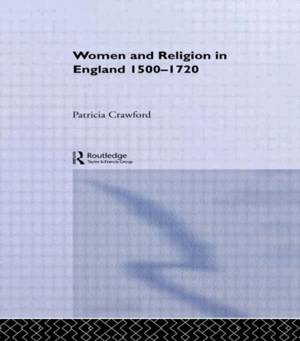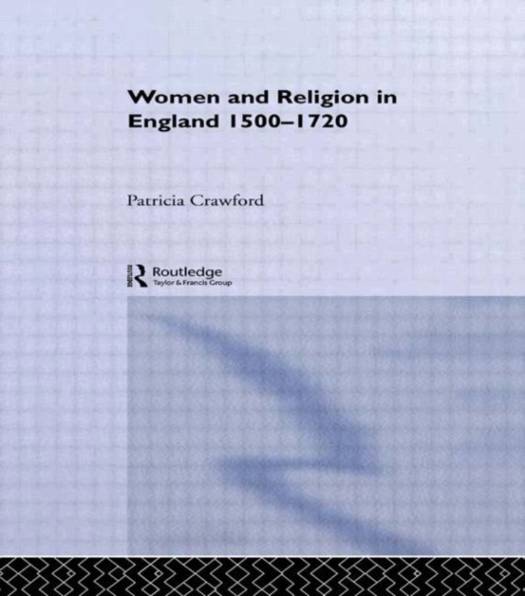
- Afhalen na 1 uur in een winkel met voorraad
- Gratis thuislevering in België vanaf € 30
- Ruim aanbod met 7 miljoen producten
- Afhalen na 1 uur in een winkel met voorraad
- Gratis thuislevering in België vanaf € 30
- Ruim aanbod met 7 miljoen producten
Zoeken
Omschrijving
Patricia Crawford explores how the study of gender can enhance our understanding of religious history, in this study of women and their apprehensions of God in early modern England. The book has three broad themes: the role of women in the religious upheaval in the period from the Reformation to the Restoration; the significance of religion to contemporary women, focusing on the range of practices and beliefs; and the role of gender in the period. The author argues that religion in the early modern period cannot be understood without a perception of the gendered nature of its beliefs, institutions and language. Contemporary religious ideology reinforced women's inferior position, but, as the author shows, it was possible for some women to transcend these beliefs and profoundly influence history.
Specificaties
Betrokkenen
- Auteur(s):
- Uitgeverij:
Inhoud
- Aantal bladzijden:
- 280
- Taal:
- Engels
- Reeks:
Eigenschappen
- Productcode (EAN):
- 9780415016964
- Verschijningsdatum:
- 27/05/1993
- Uitvoering:
- Hardcover
- Formaat:
- Ongenaaid / garenloos gebonden
- Afmetingen:
- 155 mm x 214 mm
- Gewicht:
- 485 g

Alleen bij Standaard Boekhandel
+ 549 punten op je klantenkaart van Standaard Boekhandel
Beoordelingen
We publiceren alleen reviews die voldoen aan de voorwaarden voor reviews. Bekijk onze voorwaarden voor reviews.











